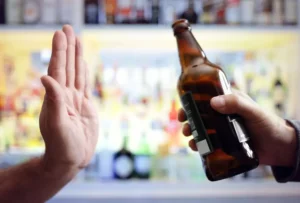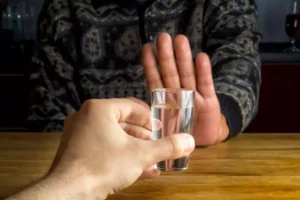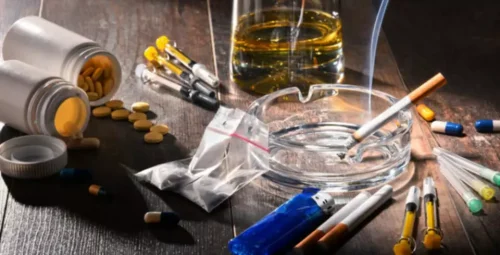Making Sense and Moving On: The Potential for Individual and Interpersonal Growth Following Emerging Adult Breakups

But there’s often little direct attention to relationship difficulties in recovery programs unless it includes structured couple or family therapy. This intense focus on personal accountability in recovery can lead to completely ignoring the other side of the story—relationships may have contributed to addiction and may be complicating recovery efforts. Struggling with addiction can also lower motivation and cause depression, anxiety, and fatigue. These symptoms can =https://ecosoberhouse.com/ make someone seem unreliable, irresponsible, or uncaring. Substance abuse and addiction can lead to behaviors that are not helpful to relationships, such as increased self-focus or selfishness, avoidance, persistent irritability, or withdrawal. During times of active substance abuse, there are usually fewer positive interactions with loved ones.

Emotional Support

Recognizing these dynamics is the first step toward fostering healthier connections and improving one’s overall well-being. For more information on emotional awareness in recovery, refer to our articles on developing emotional intelligence in recovery and more ways to develop emotional intelligence in recovery. Unhealthy relationship dynamics often involve patterns that enable harmful behaviors, excuse wrongdoings, and perpetuate denial and avoidance.
What is Drug Detox?
The foundation of mending relationships is recognizing the impact of your substance abuse on others. It’s about understanding the depth of the hurt and the consequences of your actions. Taking full responsibility without excuses shows your loved ones that you are genuinely committed to change and are aware of the pain you’ve caused.

Tips for Managing Anger in Healthy Ways
On top of their influence on an individual’s emotional state, toxic relationships can also stop progress in addiction recovery through enabling behaviors. These behaviors might include providing alcohol or drugs, decreasing the severity of the addiction problem, or sabotaging attempts at sobriety. When both parties aren’t afflicted simultaneously, an addiction inside of a relationship is nearly always a major source of disconnection.

These activities can range from sports, hobbies, volunteer work, or social clubs, and they provide a healthy environment for developing new friendships and strengthening your recovery. Express gratitude and appreciation for the support and love your friends and family have shown. Small gestures of appreciation can go a long way in reinforcing the bond you share. Acknowledging the role they play in your recovery journey can make them feel valued and appreciated. Recovery is an excellent time to explore new hobbies or revisit old interests that you might have neglected. Whether it’s joining a local sports team, taking art classes or educational workshops, or learning a new instrument, engaging in activities you enjoy can introduce you to people with similar interests.
Limitations to this area of research include a focus on divorce and on negative associations with breaking up and use of retrospective self-report data. How dissolutions of emerging adult unmarried relationships influence adjustment prospectively is less clear. In addition, no research to date has examined the ways in which dissolutions may predict future relationship functioning in key areas of relationship quality such as conflict, intimate self-confidence, or autonomy via support. By addressing specific future relationship relationships in recovery qualities using multiple reporters and observational data, this study addresses previously neglected or biased findings.
- Thus, emerging adults engaging in even short-term relationships may perceive their partner as an attachment figure.
- By actively cultivating empathy in recovery, individuals can nurture healthier relationships, reduce conflicts, and strengthen connections based on understanding and compassion.
- The experience of a veteran is marked by courage, sacrifice, and tenacity.
Establishing Boundaries in Recovery
In the process of recovery, it is crucial to recognize and address marijuana addiction dysfunctional patterns in relationships. Toxic relationships characterized by behaviors that cause emotional or physical harm, such as shame, dishonesty, and boundary violations, can impact one’s well-being and recovery journey 1. Codependents are often empathic and caring people who wish to support their partners; however, codependents helping people with alcohol and substance use disorders may experience distress over their partners condition.
When you place too much emphasis on the relationship at the expense of your personal growth and interests, it can create an unhealthy and disproportionate dynamic. Close friendship competence was assessed using the friend report of the 4-item Close Friendship subscale of the adult self-perception for adolescents about the target participant (Harter, 1988) at age 22. Higher scores reflect better developed abilities to form and maintain close and fulfilling relationships with friends including high levels of communication skills.
FAQs about The Importance Of Supportive Relationships In Addiction Recovery: Building A Sober Community
Building on this, it is essential for people in addiction recovery to prioritize their own wellbeing and be around supportive people who promote positive change. While getting out of toxic relationships can be tough, it is necessary for those looking for long-term recovery. That is why, we highly emphasize the need for creating healthy boundaries and finding positive influences as part of making a new social support network.

The Importance of Healthy Relationships
Loved ones may find themselves enabling the addictive behavior, trying to protect the individual from the consequences, or taking on the role of the caregiver. This imbalance can strain the relationship and hinder the establishment of healthy boundaries. Addiction is a formidable force that reverberates beyond the individual, casting a shadow over the lives of loved ones and challenging the very fabric of their relationships. To navigate the path of rebuilding trust and connection, you need to understand the profound impact addiction has on relationships. This involves giving full attention to the speaker, refraining from interruptions, offering feedback to demonstrate understanding, and asking open-ended questions to encourage further discussion. By actively listening, individuals can create a safe and supportive environment for exchanging thoughts, emotions, and concerns.